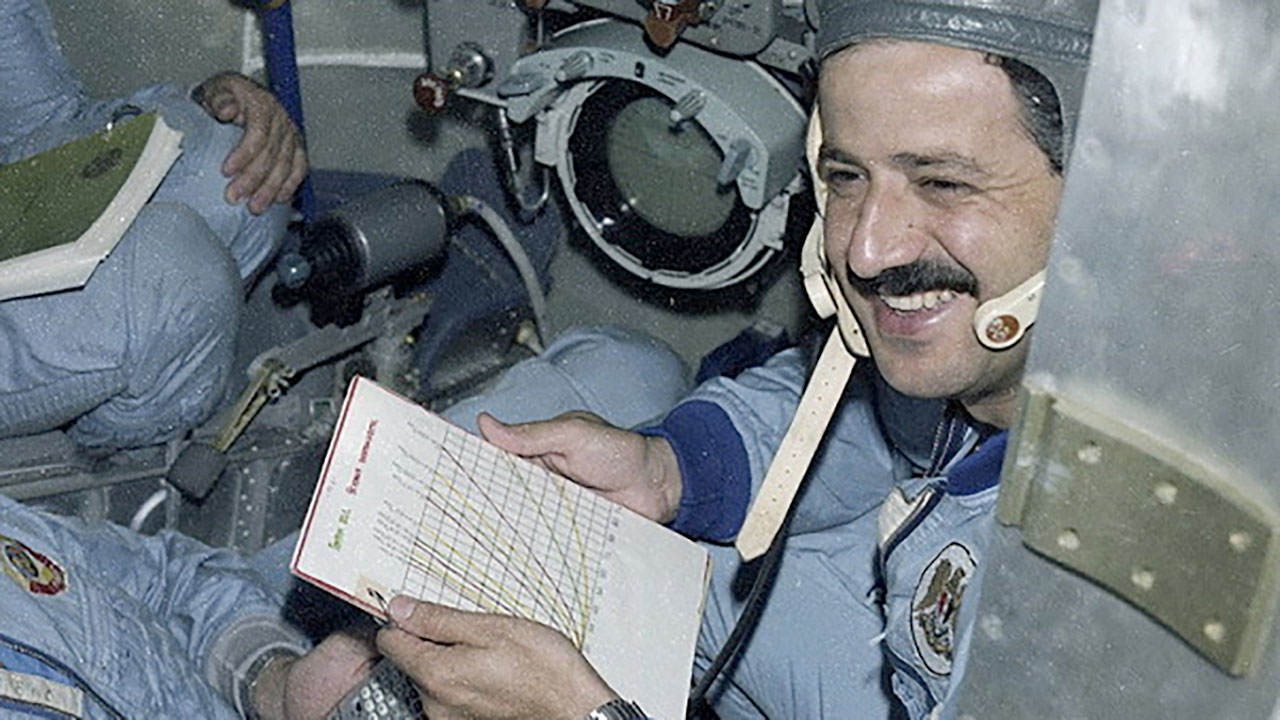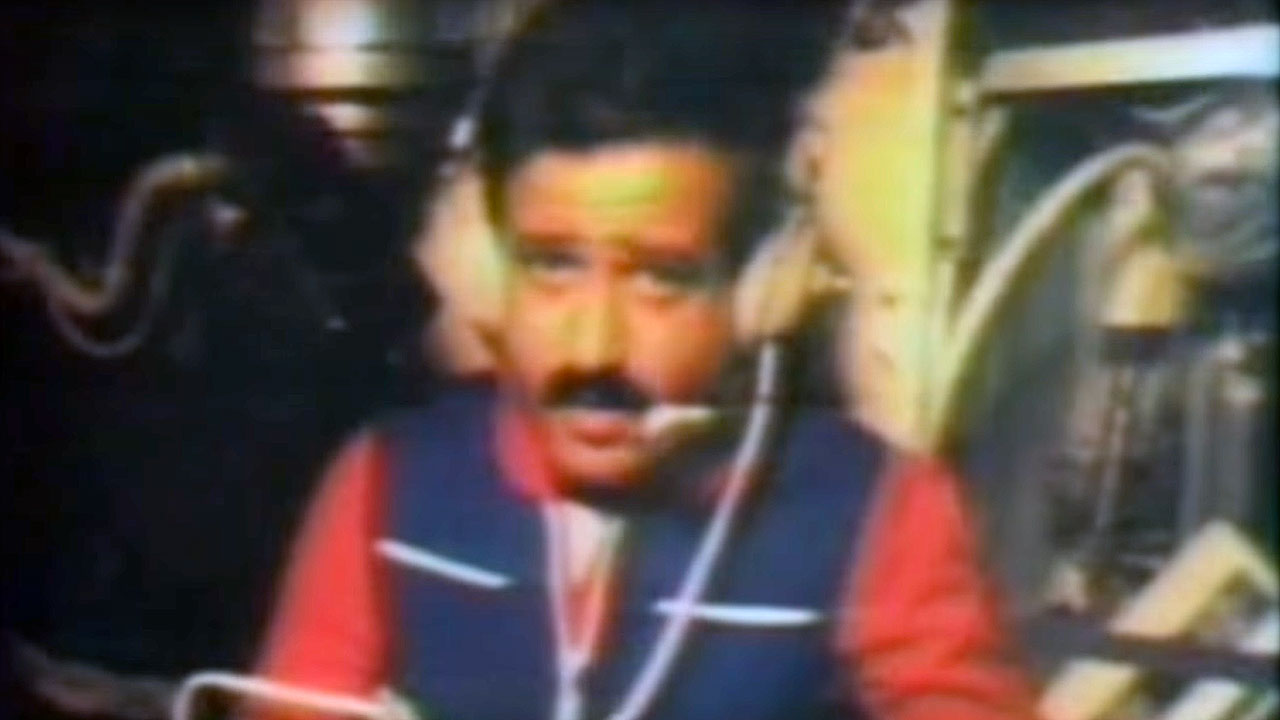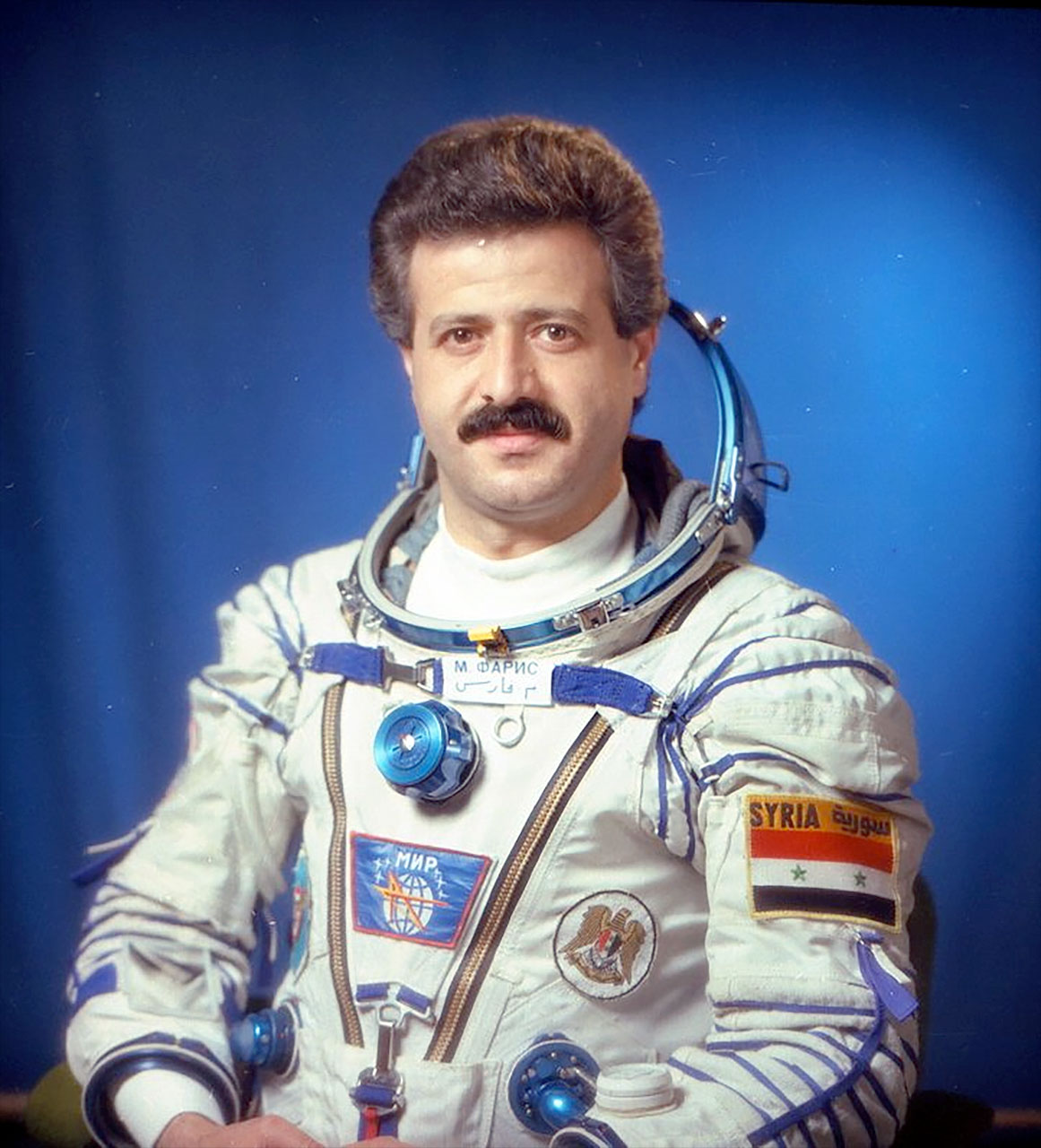Cosmonaut Muhammed Faris, first Syrian in space, dies at 72
Faris launched aboard Soyuz TM-3 to the Mir space station as part of the Soviet Union's Interkosmos program.

Muhammed Faris, who was the first cosmonaut from Syria and second Arab to fly into space, has died at the age of 72.
Faris' death on Friday (April 19) was reported by Syrian media. According to the reports, he died as a result of a long illness in Türkiye, where had been living as a refugee since 2012.
Selected in 1985 as part of the Soviet Union's Interkosmos program, Faris lifted off on his first and only spaceflight on July 22, 1987. Launching on board Soyuz TM-3 with cosmonauts Aleksandr Viktorenko and Aleksandr (Pavlovich) Aleksandrov, Faris became the 12th foreign national to fly on a Russian spaceflight and the first to visit the space station Mir.
Over the course of the week-long mission, Faris carried out observations of Syria from orbit and took part in science investigations, including material processing and biological experiments.
"We are now flying over our lovely country, Syria," said Faris in a live broadcast from Mir. "At this happy moment, I'm sending all my deepest respect and love ... to all my people everywhere."
Related: Mir space station: Testing long-term stays in space
Faris was also the first person to carry dirt from Earth into space. "I brought with me a vial carrying soil from Damascus," he said in a 2015 interview with The National, a United Arab Emirates (UAE) newspaper.
On July 30, 1987, Faris landed back on Earth on Soyuz TM-2 with Viktorenko and Aleksandr Laveykin, the latter a member of Mir's second resident crew. It was the first time that a Mir crew launched on board one spacecraft and landed on another.
Faris logged a total of 7 days, 23 hours and 4 minutes in space. He was the 209th person to fly into space and the 202nd to orbit Earth, according to the Association of Space Explorers' Registry of Space Travelers.
"It would take me days to describe the feeling of going up there, seeing planet Earth, seeing Syria from above and that sense of pride of accomplishing something historic for my country and for the Arabs," he told The National.
Muhammed Ahmed Faris was born on May 26, 1951, in Aleppo, Syria. He graduated from the military pilot school in Aleppo in 1973 and became a pilot in the Syrian Air Force specializing in navigation.
Faris trained for his spaceflight alongside another member of the Syrian Air Force, Munir Habib, who never flew into space.
Faris was named a Hero of the Soviet Union and was awarded the Order of Lenin for his role in the Interkosmos program.
After his mission, Farris returned to Aleppo and continued to serve in the Syrian military, rising to the rank of general, until 2012 when he defected and fled with his family to Türkiye. Living in exile, Faris said he looked forward to the day when the current Syrian regime would be replaced, so that he and many others could return home.
"It is important to remember Syria for its long and rich history, its many pioneers and how it conquered many frontiers, including the final frontier of space," he said.
Faris was married to Gind Akil and had five children.
Follow collectSPACE.com on Facebook and on Twitter at @collectSPACE. Copyright 2024 collectSPACE.com. All rights reserved.
Breaking space news, the latest updates on rocket launches, skywatching events and more!

Robert Pearlman is a space historian, journalist and the founder and editor of collectSPACE.com, a daily news publication and community devoted to space history with a particular focus on how and where space exploration intersects with pop culture. Pearlman is also a contributing writer for Space.com and co-author of "Space Stations: The Art, Science, and Reality of Working in Space” published by Smithsonian Books in 2018.
In 2009, he was inducted into the U.S. Space Camp Hall of Fame in Huntsville, Alabama. In 2021, he was honored by the American Astronautical Society with the Ordway Award for Sustained Excellence in Spaceflight History. In 2023, the National Space Club Florida Committee recognized Pearlman with the Kolcum News and Communications Award for excellence in telling the space story along the Space Coast and throughout the world.



